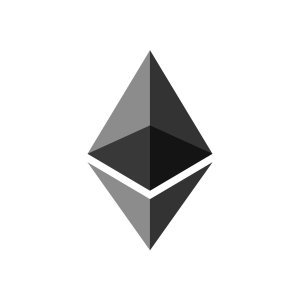What is Ethereum?

Ethereum is a Blockchain or Distributed Accounting Technology (DTL) with a fully integrated Turing programming language, a blockchain computer, which allows anyone to write intelligent contracts and decentralized applications simply by writing logic in a few lines of code.
The Ethereum protocol was originally conceived as an improved version of the Bitcoin cryptomoneda, to overcome the limitations of its programming language, providing advanced features such as custody over blockchain, withdrawal limits, financial contracts, gambling market and similar to Through a very generalized programming language.
In Ethereum, a basic version of Namecoin, the decentralized name registration database, can be written in two lines of code, and other protocols such as coins and reputation systems can be built in less than twenty lines. Smart contracts, cryptographic "boxes" that contain value and are only unlocked if certain conditions are met, can also be incorporated on top of the platform, with much more power than the one offered by the Bitcoin script due to the added power of the full Turing.
The Ethereum protocol does not "support" any of the applications directly, but the existence of a complete Turing programming language allows arbitrary contracts theoretically to be created for any type of transaction or application. What is more interesting about Ethereum, however, is that the Ethereum protocol moves far beyond the coin. Protocols around decentralized file storage, decentralized computing and decentralized prediction markets, among dozens of other similar concepts, have the potential to substantially increase the efficiency of the computing industry, and provide a boost to other peer-to-peer protocols by adding For the first time an economic layer. Finally, there are also a considerable variety of applications that have nothing to do with money at all.
What is Ether?

Ether is the criptomoneda of Ethereum, the fuel that drives this platform of distributed applications. It is a cryptomoneda used by the clients of the platform Ethereum to make payments to other people or to machines that execute requested operations. That is, Ether is the incentive that ensures that developers write quality applications (unnecessary coding costs more) and that the network stays healthy (people are rewarded for the resources provided).
The total offer of Ether and its emission rate was decided in the pre-sale of 2014. The key data are as follows:
60 million Ether were created for pre-tax payers.
12 million were created for the development fund, most of them went to the first contributors and the developers and the rest to the Ethereum Foundation.
5 Ether are created by each block (every 15-17 seconds) for the miners of the blocks.
2-3 Ether are sometimes sent to other miners if they were able to find a solution but their block was not included (called Uncle / Aunt reward).
Under the terms agreed by all parties in the pre-sale of 2014, the Ether issue is limited to Ether 18 million per year (25% of the initial offer). Although this rate is expected not to be maintained as in 2017, Ethereum will change its Mining Worker (PoW) scheme to Participation Test (PoS) under the Casper key name.
What is Gas?
In order to avoid infinite accidental, hostile loops, or other computational waste in the code, each transaction is required to set a limit to the number of computational steps of code execution that it can use. The fundamental unit of computation is "gas." Usually, a computational step costs 1 gas, but some operations cost higher amounts of gas because they are more computationally expensive, or because they increase the amount of data that must be stored as part of the state. There is also a 5 gas fee per each byte in the transaction data.
The intent of the commissions system is to force an attacker to pay proportionately for each resource they consume, including computing, bandwidth, and storage. Therefore, any operation that leads the network to consume a greater amount of any of these resources must have a gas commission more or less proportional to the increase.
Source: Ethereum white paper